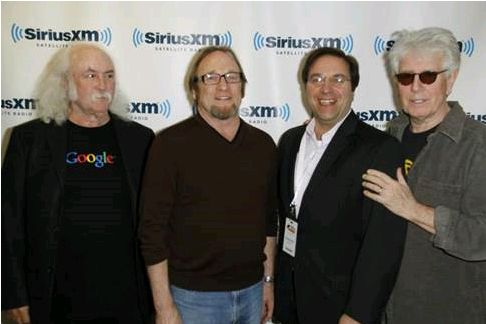“[Crosby and I] were in love with each other and in possession of something magical.” Graham Nash, 1990.
“I don't want anything to do with Crosby at all . . . I'm done. F**k you.” Graham Nash, March 2016.
I could tolerate last year’s war of words between David Crosby and Neil Young. And sure, there has always been tension with that hothead (but genius) Stills. But for Crosby Stills & Nash fans, a Crosby/Nash rift is a surprising and devastating turn of events. After 47 years together, having weathered drug addictions, prison stints and liver transplants, I, for one, was unprepared for the split. So much for “Love the One You’re With.”
Lawyers can’t afford to be caught off guard when their clients break with one another. Whether it’s a husband and wife, business partners, or a corporation and its employee, we are often asked to represent multiple clients in a single matter. At the outset of the representation, everyone is seemingly on the same page and happy. As the matter evolves though, interests can diverge and once agreeable clients can descend into the darkness while the seemingly helpless lawyer watches.
So what do you do when one client wants copies of your communications with the other? Or when one client stops paying? Or when one wants you to fire the other and continue to represent him or her? You don’t have to cry; these questions can be really easy to answer — if you have a fully executed engagement letter with appropriate disclosures and consents. Specifically:
Everybody I Love You: Have the clients confirm that their interests are aligned.
50/50: Be clear on the responsibility for payment of fees. Are they split evenly or is one paying for all?
Yours and Mine: Explain the disadvantages of joint representation, including that there is no privilege as between or among joint clients. In other words, if we learn something from one client that we think the other needs to know, we will disclose the information to the other.
See The Changes: Be clear on what happens if a conflict develops. Are we going to withdraw from the representation? Or will we withdraw from representing one (e.g., a corporate officer), but continue representing the other (e.g., the company)?
Turn Back the Pages: Make sure the letter is executed by each of the clients.
This way, if and when your clients go CSN on you, you’ll be able to carry on.
And, for what it’s worth, anytime CSN are ready to get back together, they can count me in.

Dentons is the world's first polycentric global law firm. A top 20 firm on the Acritas 2015 Global Elite Brand Index, the Firm is committed to challenging the status quo in delivering consistent and uncompromising quality and value in new and inventive ways. Driven to provide clients a competitive edge, and connected to the communities where its clients want to do business, Dentons knows that understanding local cultures is crucial to successfully completing a deal, resolving a dispute or solving a business challenge. Now the world's largest law firm, Dentons' global team builds agile, tailored solutions to meet the local, national and global needs of private and public clients of any size in more than 125 locations serving 50-plus countries. www.dentons.com.
The content of this article is intended to provide a general guide to the subject matter. Specialist advice should be sought about your specific circumstances.

